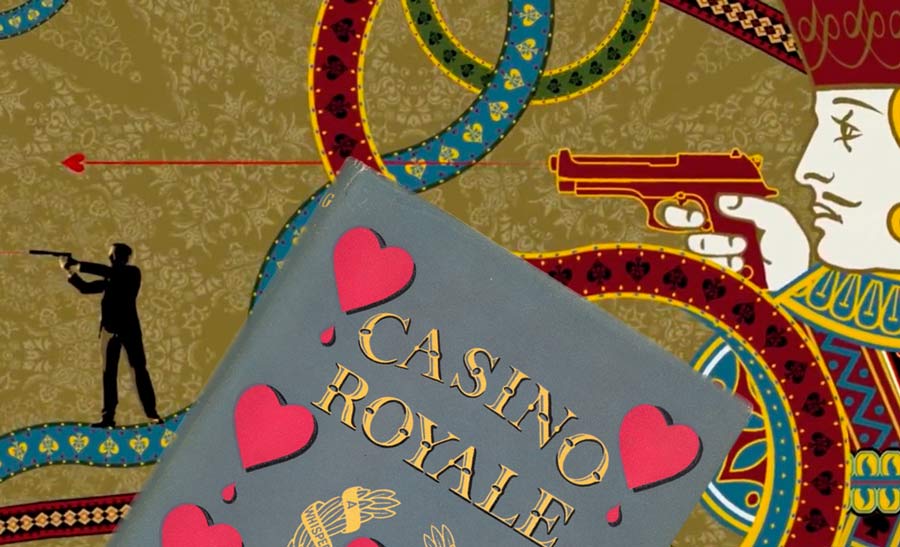Hot on the Shelves: The Rising Popularity of Gambling Literature in Bookstores
Gambling literature is gaining notable popularity in bookstores, reflecting a growing interest in stories and insights centred around gambling. This trend is influenced by the proliferation of online gambling and the integration of casino culture into mainstream entertainment. Understanding the rise of gambling literature requires examining its appeal, historical context, and the demographics of its readers.
Factors Contributing to Popularity
How Has the Rise of Online Gambling and Casino Culture Increased Interest?
The surge in online gambling has played a significant role in increasing interest in gambling literature. With the convenience of online platforms, more people are engaging in gambling activities, which has sparked curiosity about the stories and experiences related to this world.
Additionally, this analysis with side-by-side evaluation of the best online casinos in Canada provides a detailed breakdown of features, security measures, and user experiences. Understanding these factors can help you select the best platform for your needs.
The Appeal of High-Stakes Drama and Psychological Insights
Gambling literature often features high-stakes drama, making it inherently engaging. These stories offer psychological insights into gamblers’ motivations, strategies, and emotional highs and lows. Readers are drawn to the thrill of the game, the tension of potential loss, and the joy of victory. This emotional rollercoaster resonates with readers looking for compelling narratives.
Influence of Movies and TV Shows on the Popularity of Gambling-Themed Stories
Movies and TV shows centred around gambling have also contributed to the popularity of gambling literature. Films like “Casino Royale” and TV series like “Breaking Bad” have portrayed gambling and high-stakes scenarios, capturing the public’s imagination. This crossover appeal between visual media and literature has led readers to explore written works on similar themes.
Gambling Literature: Key Points
Gambling literature encompasses a wide range of works exploring various aspects of gambling. This genre includes fiction and non-fiction, offering diverse perspectives on gambling experiences, strategies, history, and cultural significance.

Types of Gambling Literature
- Fiction: Novels and short stories that depict fictional accounts of gambling. These works often focus on character development, plot twists, and the psychological aspects of gambling.
- Non-Fiction: Books that provide factual gambling accounts, including strategy guides, memoirs, and historical analyses. Non-fiction works aim to educate readers about the realities of gambling.
- Memoirs: Personal accounts by individuals who have experienced gambling firsthand. These narratives offer unique insights into the personal and emotional journeys of gamblers.
- Historical Accounts: Books that explore the history of gambling, tracing its evolution and impact on various cultures and societies.
Brief History of Gambling Literature
Gambling literature has a rich history, with early references in ancient texts. Over time, the genre has evolved, reflecting changes in societal attitudes towards gambling. Notable historical works include Fyodor Dostoevsky’s “The Gambler” (1867), which delves into the psychological turmoil of addiction.
Key Milestones and Influential Works
- “The Gambler” by Fyodor Dostoevsky (1867) is a seminal work that explores the protagonist’s compulsive gambling and its effects on his life.
- “Casino Royale” by Ian Fleming (1953): The first James Bond novel introduces high-stakes gambling as a central theme.
- “Bringing Down the House” by Ben Mezrich (2002): A non-fiction account of MIT students who used card counting to win millions in Las Vegas.
Demographics and Reader Profiles
Gambling literature attracts a diverse readership, including:
- Age: Primarily adults aged 25-45, interested in the gambling world and engaging narratives.
- Gender: A balanced mix of male and female readers, although specific sub-genres may skew towards one gender.
- Interests: Readers interested in psychology, strategy, and high-stakes drama.
Different demographics are drawn to gambling literature for various reasons. Younger readers may be intrigued by the thrill and strategy involved, while older readers might seek a deeper understanding of the psychological and historical aspects. Additionally, those with personal experiences in gambling find resonance in memoirs and non-fiction works.
Popular Titles and Authors
List of Bestselling Gambling Books Currently Hot on the Shelves
- “Bringing Down the House” by Ben Mezrich
- “The Gambler” by Fyodor Dostoevsky
- “Casino Royale” by Ian Fleming
- “Molly’s Game” by Molly Bloom
- “Beat the Dealer” by Edward O. Thorp

Profiles of Notable Authors in the Gambling Literature Genre
- Fyodor Dostoevsky: Known for exploring the human psyche, Dostoevsky’s “The Gambler” remains a cornerstone of gambling literature.
- Ben Mezrich: An author specializing in non-fiction accounts of extraordinary events, Mezrich’s “Bringing Down the House” brought widespread attention to card counting.
- Ian Fleming: Creator of the James Bond series, Fleming’s “Casino Royale” introduced readers to the glamorous and dangerous world of high-stakes gambling.
Brief Synopsis of Selected Popular Titles
- “Bringing Down the House”: Chronicles the true story of MIT students who used their mathematical skills to beat the casinos in Las Vegas.
- “The Gambler” Follows the life of Alexei Ivanovich, a man consumed by his gambling addiction, exploring themes of obsession and desperation.
- “Casino Royale”: Introduces James Bond as he takes on Le Chiffre in a high-stakes poker game, blending espionage and gambling.
How Does Gambling Literature Reflect Modern Trends?
The increasing popularity of gambling literature reflects broader trends in the literary and gambling industries. It highlights the growing interest in understanding the complexities of gambling, from psychological and strategic perspectives to historical and cultural contexts. This trend also signifies a merging of entertainment forms, where literature, cinema, and online gambling intersect.
The future of gambling literature looks promising, with the potential for new sub-genres and emerging authors to further enrich the field. As online gambling continues to grow, the demand for compelling stories and insightful analyses will likely increase, ensuring that gambling literature remains a vibrant and relevant genre.
